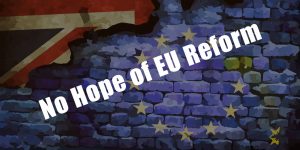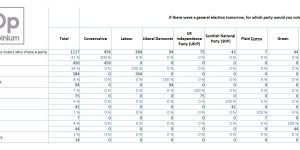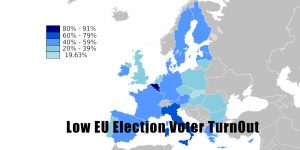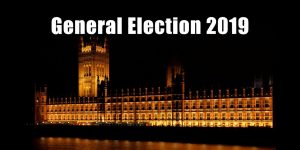The United Kingdom’s Exit from and new Partnership with the European Union White Paper
2. Taking Control of Our Own Laws
We will take control of our own affairs, as those who voted in their millions to leave the EU demanded we must, and bring an end to the jurisdiction in the UK of the Court of Justice of the European Union (CJEU).
Parliamentary sovereignty
2.1 The sovereignty of Parliament is a fundamental principle of the UK constitution. Whilst Parliament has remained sovereign throughout our membership of the EU, it has not always felt like that. The extent of EU activity relevant to the UK can be demonstrated by the fact that 1,056 EU-related documents were deposited for parliamentary scrutiny in 2016. These include proposals for EU Directives, Regulations, Decisions and Recommendations, as well as Commission delegated acts, and other documents such as Commission Communications, Reports and Opinions submitted to the Council, Court of Auditors Reports and more.
2.2 Leaving the EU will mean that our laws will be made in London, Edinburgh, Cardiff and Belfast, and will be based on the specific interests and values of the UK. In chapter 1 we set out how the Great Repeal Bill will ensure that our legislatures and courts will be the final decision makers in our country.
Ending the jurisdiction of the Court of Justice of the European Union in the UK
2.3 The Court of Justice of the European Union (CJEU) is the EU’s ultimate arbiter on matters of EU law. As a supranational court, it aims to provide both consistent interpretation and enforcement of EU law across all 28 Member States and a clear process for dispute resolution when disagreements arise. The CJEU is amongst the most powerful of supranational courts due to the principles of primacy and direct effect in EU law. We will bring an end to the jurisdiction of the CJEU in the UK. We will of course continue to honour our international commitments and follow international law.
Dispute resolution mechanisms
2.4 We recognise that ensuring a fair and equitable implementation of our future relationship with the EU requires provision for dispute resolution.
2.5 Dispute resolution mechanisms ensure that all parties share a single understanding of an agreement, both in terms of interpretation and application. These mechanisms can also ensure uniform and fair enforcement of agreements.
2.6 Such mechanisms are common in EU-Third Country agreements. For example, the new EU-Canada Comprehensive Economic and Trade Agreement (CETA) established a ‘CETA Joint Committee'[1] to supervise the implementation and application of the agreement. Parties can refer disputes to an ad hoc arbitration panel if necessary. The Joint Committee can decide on interpretations that are binding on the interpretation panels.[2] Similarly, the EU’s free trade agreement with South Korea also provides for an arbitration system where disputes arise. [3]
2.7 Dispute resolution mechanisms are also common in other international agreements.
Under the main dispute settlement procedure in the North American Free Trade Agreement (NAFTA), the governments concerned aim to resolve any potential disputes amicably, but if that is not possible, there are expeditious and effective panel procedures. Similarly, under the treaties establishing Mercosur, disputes are in the first instance resolved politically, but otherwise the parties can submit the dispute to an ad hoc arbitration tribunal. Decisions of the tribunal may be appealed on a point of law to a Permanent Review Tribunal Under the New Zealand-Korea Free Trade Agreement, where the focus is also on cooperation and consultation to reach a mutually satisfactory outcome. The agreement sets out a process for the establishment of an arbitration panel. The parties must comply with its findings and rulings, otherwise compensation may be payable or the benefits of the FTA may be suspended. Within the World Trade Organisation (WTO), the Dispute Settlement Body (made up of all the members of the WTO) decides on disputes between members relating to WTO agreements.[4] Recommendations are made by dispute settlement panels or by an Appellate Body which can uphold, modify or reverse the decisions reached by the panel.
Such mechanisms are essential to ensuring fair interpretation and application of international agreements.
2.8 The UK already has a number of dispute resolution mechanisms in its international arrangements. The same is true for the EU. Unlike decisions made by the CJEU, dispute resolution in these agreements does not have direct effect in UK law.
2.9 As with any wide-ranging agreement between states, the UK will seek to agree a new approach to interpretation and dispute resolution with the EU. This is essential to reassure businesses and individuals that the terms of any agreement can be relied upon, that both parties will have a common understanding of what the agreement means and that disputes can be resolved fairly and efficiently.
[1] Article 26(1); Comprehensive Economic and Trade Agreement between the European Union and Canada.
[2] Articles 26(1) and 29(6); Comprehensive Economic and Trade Agreement between the European Union and Canada.
[3] Chapter 14, EU-South Korea Free Trade Agreement: A Quick Reading Guide’, European Commission, October 2010.
[4] Article 2 and Articles 17-19; WTO Dispute Resolution Understanding (DSU).
2.10 There are a number of examples that illustrate how other international agreements approach interpretation and dispute resolution.5 Some of these are set out in Annex A.
Of course, these serve only as examples of current practice. The actual form of dispute resolution in a future relationship with the EU will be a matter for negotiations between the UK and the EU, and we should not be constrained by precedent. Different dispute resolution mechanisms could apply to different agreements, depending on how the new relationship with the EU is structured. Any arrangements must be ones that respect UK sovereignty, protect the role of our courts and maximise legal certainty, including for businesses, consumers, workers and other citizens.
For example, almost all of the UK’s 90+ Bilateral Investment Treaties have Investor-State Dispute Settlement provisions. Air Services Agreements with various states, and other types of international agreements, involve arrangements for appointing panels of arbitrators.
Previous : Providing Certainty and Clarity
Next : Strengthening the Union
The United Kingdom’s Exit from and new Partnership with the European Union White Paper











